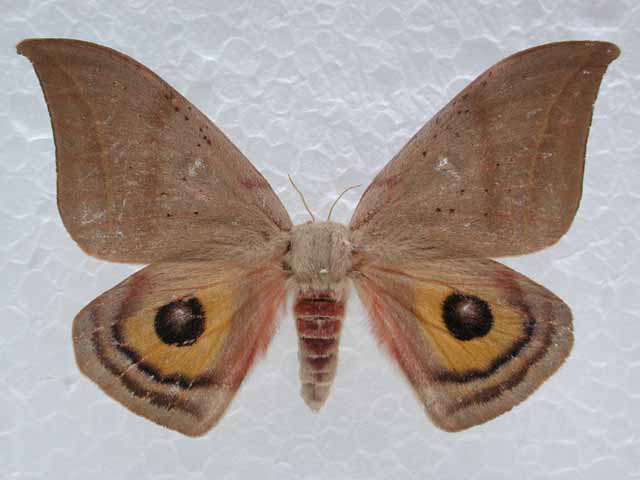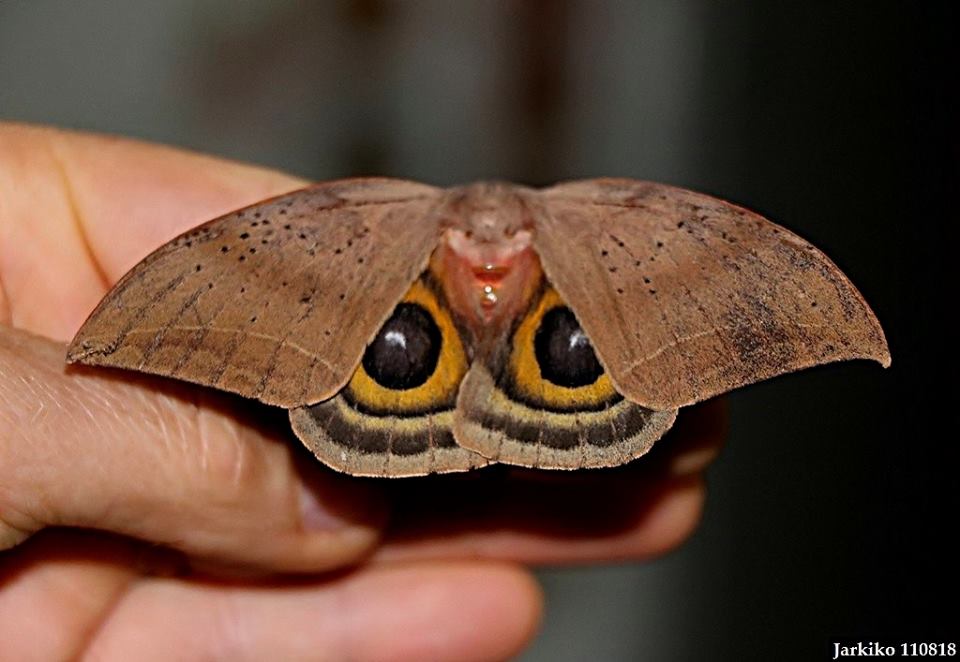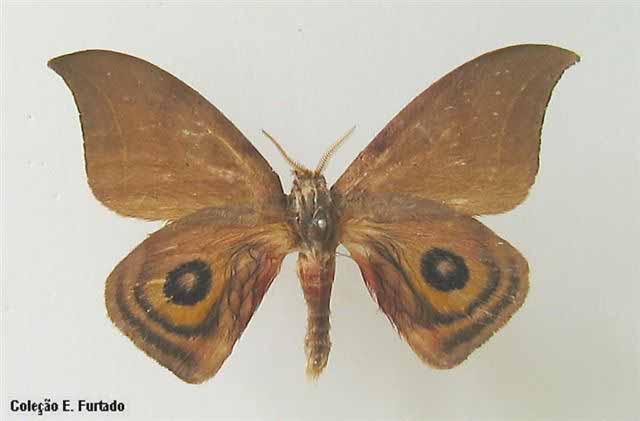Automeropsis umbrata
(Boisduval, 1875)
(Io)

Automeropsis umbrata (female), Brazil, courtesy of Eric van Schayck.

Automeropsis umbrata, Massaranduba, Santa Catarina, Brazil,
August 12, 2018, courtesy of Joao Amarildo Ranguetti, id by Bill Oehlke.
TAXONOMY:Superfamily: Bombycoidea, Latreille, 1802 |
